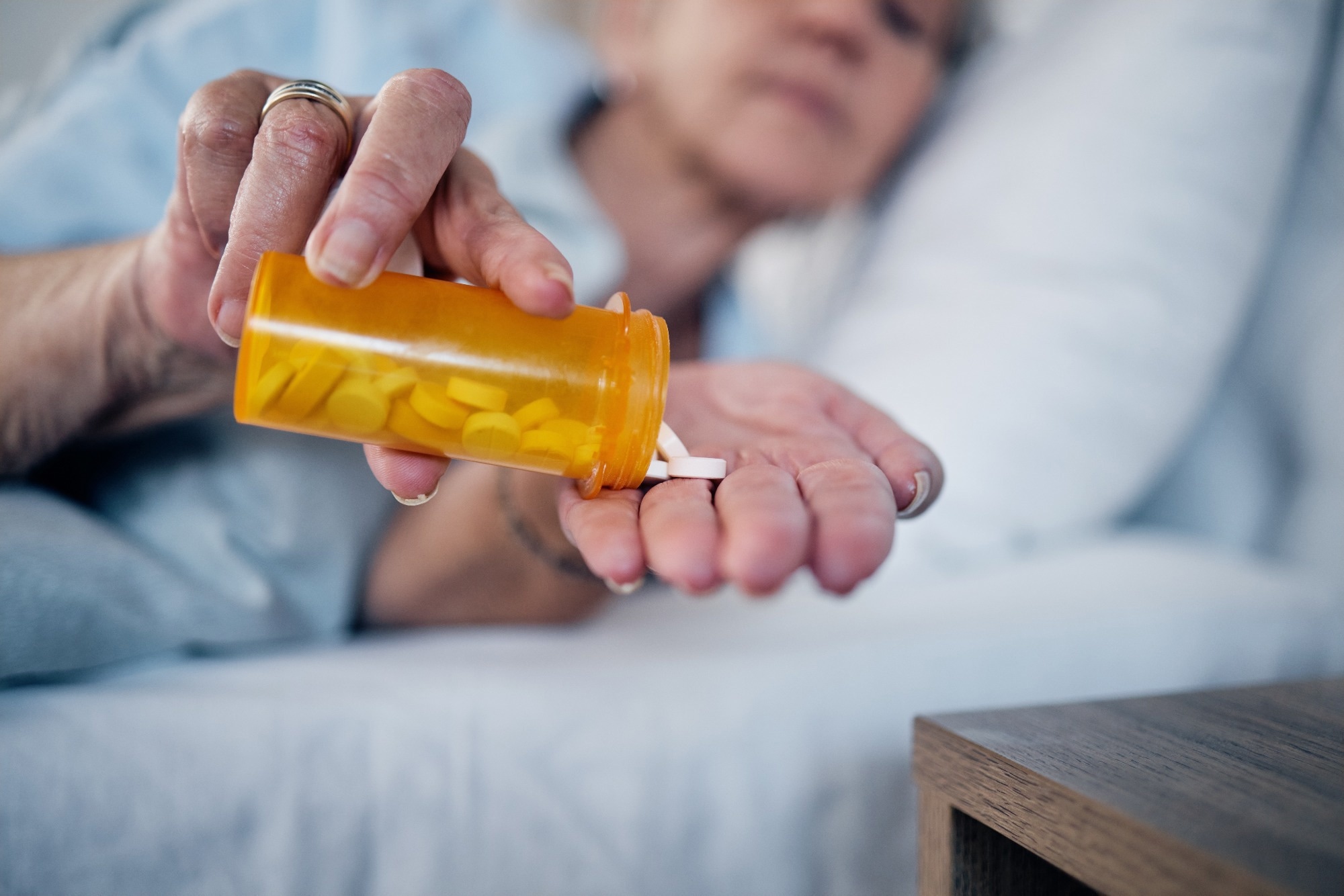Long coronavirus disease 2019 (COVID-19) is defined as the continuation or development of new COVID-19 symptoms three months after the initial infection with the severe acute respiratory syndrome coronavirus 2 (SARS-CoV-2). This highly heterogeneous disease can range from a single symptom to severe multi-organ involvement that can vary significantly in their duration. As a result, diagnosing and treating long COVID remains challenging.
 Study: Outpatient treatment of COVID-19 and incidence of post-COVID-19 condition over 10 months (COVID-OUT): a multicentre, randomised, quadruple-blind, parallel-group, phase 3 trial. Image Credit: PeopleImages.com - Yuri A / Shutterstock.com
Study: Outpatient treatment of COVID-19 and incidence of post-COVID-19 condition over 10 months (COVID-OUT): a multicentre, randomised, quadruple-blind, parallel-group, phase 3 trial. Image Credit: PeopleImages.com - Yuri A / Shutterstock.com
About the study
In the present study, researchers randomized all study participants to six groups that parallelly received metformin and ivermectin, metformin and fluvoxamine, metformin and placebo, ivermectin and placebo, fluvoxamine and placebo, or placebo and placebo.
Due to the quadruple-blinded design of the trial, all study participants, researchers, and other personnel involved in outcome assessments remained masked to study drug assignments. The researchers administered all study drugs as oral formulations, titrating their dosages over six days.
As long COVID was an unknown condition until 2020, the 10-month follow-up was not part of the COVID-OUT trial original protocol. Long COVID was eventually added to the protocol on April 23, 2021, and ultimately received institutional approval in July 2021. Thus, the secondary long-term outcome of this trial was a diagnosis of long COVID within ten months of infection by a medical provider.
Here it is noteworthy that multiple factors influence the diagnosis of long COVID, such as access to care, willingness to seek it when experiencing post-COVID-19 symptoms, and awareness of long COVID in clinicians.
Study findings
Of the 1,323 randomized study participants in the modified intention-to-treat population, the authors followed up with 1,126 volunteers who consented to long-term participation. By day 180, the study participants completed at least one survey assessing long COVID. On average, these participants were 45 years old, 632 and 494 of 1,126 were female and male, respectively, with 44 of the 632 female participants pregnant.
Over 95% of study participants completed nine months of study follow-up and reported a long COVID diagnosis. No marked differences in adverse events in metformin and matched placebo groups were observed.
By Day 300, 93 study participants were diagnosed with long COVID. By this point, metformin treatment of patients with acute COVID-19 reduced the risk of long COVID by 41.3%, with a predicted aggregate incidence of 6.3% and 10.6% in the metformin and placebo groups, respectively. Conversely, the other two drugs, ivermectin and fluvoxamine, did not reduce the risk of long COVID in this trial.
The number of long COVID cases was higher than the number of emergency department visits or hospitalizations. Yet, the effect sizes for metformin to reduce the risk of severe COVID-19 and long COVID were comparable.
Conclusions
Long COVID is a new-age public health emergency that disproportionately affects socioeconomically and racially marginalized groups. Given its long-lasting adverse effects on the health and economic condition of affected people, using a widely available, low-cost drug, like metformin, for its treatment is encouraging.
As the COVID-19 pandemic evolves and more SARS-CoV-2 therapeutics are developed, prospective and interventional trials are urgently needed to assess the incidence of long COVID. These trials should include people who have received vaccination and booster vaccination with monovalent COVID-19 vaccines and people with a prior SARS-CoV-2 infection.
Nevertheless, the current study demonstrates that early treatment with metformin decreased the risk of long COVID by 41·3% during a 10-month follow-up period.
Journal reference:
- Bramante, C. T., Buse, J. B., Liebovitz, D. M., et al. (2023). Outpatient treatment of COVID-19 and incidence of post-COVID-19 condition over 10 months (COVID-OUT): a multicentre, randomised, quadruple-blind, parallel-group, phase 3 trial. The Lancet Infectious Diseases. doi:10.1016/ S1473-3099(23)00299-2